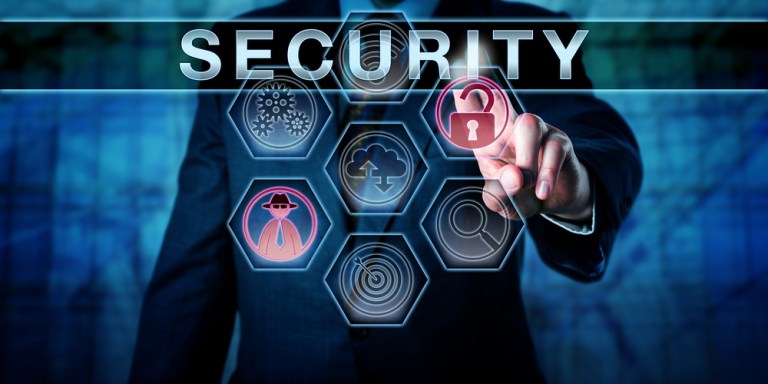
Bank heists and data breaches saw no shortage in 2016, and corporates large and small could no longer avoid the risk of a cyberattack. Still, researchers have found, many businesses do just that: RedSeal released a report this month that described the state of corporates’ approach to enterprise security as one of “cyber naïveté,” with many executives believing that their existing strategies are sufficient to ward off a cyberattack. Half of companies surveyed, however, are depending on outdated technologies and solutions to stay secure.
Mike Vigue, vice president, product strategy, cyberfraud and risk management at B2B payments firm Bottomline Technologies, warns that ongoing use of paper checks, fraudulent emails and general ignorance of cyberthreats will continue to place businesses — and their payment activities — at the center of thieves’ targets. But, Vigue added, 2017 will be a year of continued innovation in the technology that can prevent, detect and mitigate a corporate cyberattack.
What cybersecurity threats will impact corporate buyers and suppliers in 2017?
“2017 will see a continued rise in cybersecurity threats particularly around business email compromise, ransomware and malicious insiders. In addition, the battlefield is evolving. Cyberthreats are no longer just a concern for the largest banks, corporations and health care providers in the world. The movement to attack small to medium-sized businesses will continue to increase in 2017, with about half of small businesses experiencing a security incident in 2016. The environment has truly evolved into an equal opportunity hunting expedition for fraudsters.”
“What will not change in 2017 is that the primary motivating factor for fraudsters will continue to be financial gain. Any business transacting with buyers and suppliers is at risk of significant monetary and reputational loss — particularly in and around the payments process — which is the vein fraudsters are tapping much more frequently in an effort to increase the size of their gain. For example, a fraudulent wire transfer initiated through a business email compromise scheme can yield a fraudster 100 times more financial gain then a selling a credit card number or medical record via the Dark Web. Seventy-three percent of organizations experienced attempted and/or actual payments fraud in the past year.”
What technologies are emerging to combat threats in B2B payments?
“As the frequency and sophistication of cyberthreats in and around B2B payments has increased exponentially year over year, thankfully, technologies have evolved to bring additional layers of protection to the process.”
“Typically, businesses have reactive systems and processes in place to try to securely manage the payment process. Oftentimes, this legacy technology is very limited in its ability to identify, understand and react to a potentially fraudulent payment in real time.”
“For today’s sophisticated threat environment, technologies that combine real-time behavioral monitoring, predictive analytics and alert and case management capabilities are leading the way. These types of platforms can detect fraud faster to reduce financial losses and, in some instances, stop the unauthorized payment through automated transaction blocking.”
Will electronic payments continue to gain traction in B2B payments, and can that help combat fraud?
“Simply put: Crooks love checks. According to the Association of Financial Professionals 2016 Payments Fraud Survey, businesses still heavily rely on checks for almost half of their payments, yet checks continue to be the highest-targeted payment method for fraudsters, with 71 percent of companies experiencing actual or attempted check fraud.”
“Organizations are realizing that the best way to combat this relentless crime wave is to move to electronic payments. As night follows day, crime will continue. So too, then, will the rise in the use of electronic payments.”